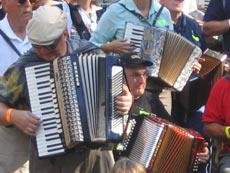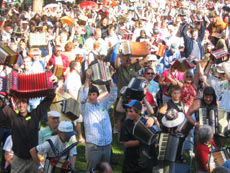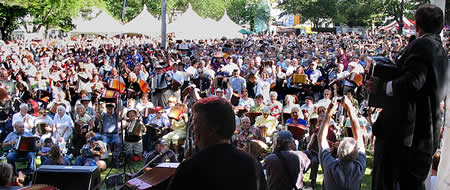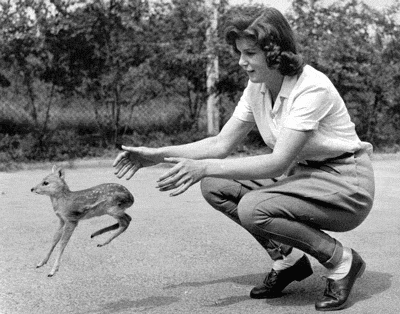Joi Ito — whom like Wendy, I met at the first BloggerCon — was
invited to write a guest editorial piece for the New York Times on the
60th anniversary of the atomic bomb’s dropping on Hiroshima. On the
#joiito IRC channel, I remember him mentioning that he was asked to
write an “impressionistic” piece, from which a number of us surmised
that it was supposed to be about what Joi thought of the events that
took place at Hiroshima and Nagasaki 60 years ago. Joi’s an interesting
case, as he regularly hops between Japan and America not just
physically, but culturally. He wouldn’t be out of place in America any
more than I would, nor would he be out of place in Japan.
(I would be out of place in
Japan — or at least the minute I opened my mouth. When I was last
there, many Japanese mistook me for one of them. This was a source of
consternation for my blonde-haried, blue-eyed friend Anne, who was
teaching English there at the time and spoke more Japanese than I did.
She’d ask for directions from local people, who would then turn to
answer me.)
Joi really didn’t have much of an impression of the bombs at Hiroshima
and Nagasaki, and neither did his contemporaries in Japan. As he writes
in his op-ed piece:
…at bottom, the bombings don’t really matter to me or, for that matter,
to most Japanese of my generation. My peers and I have little hatred or
blame in our hearts for the Americans; the horrors of that war and its
nuclear evils feel distant, even foreign. Instead, the bombs are simply
the flashpoint marking the discontinuity that characterized the
cultural world we grew up in.
My
more cynical side tends to think that peace movement kids here in North
America seem far more affected by this. It’s partially out of basic
human empathy, which is laudable, and treating what happened as some
kind of historical snuff film, which is not.
In the end, Joi managed to get “into the headspace” for the article and
managed to write his piece. He then hopped on the #joiito IRC channel,
which has a number of bright denizens and always seems to have some
kind of conversation going on, and got some help editing the piece
before submitting it to the Times. There’s another example of the power of collaboration through the internet.
The most interesting part of the article is a little “tipping point” story about Joi’s great-grandmother:
My mother used to talk about the American occupation of our hometown
in northern Japan when she was a child. Our house, the largest in the
area, was designated to be the Americans’ local headquarters. When the
soldiers arrived, my great-grandmother, nearly blind at the time, was
head of the household, my grandfather having died during the war.
My
great-grandmother and my grandmother faced the occupiers alone, having
ordered the children to hide. The Japanese had been warned that the
invading barbarians would rape and pillage. My great-grandmother, a
battle-scarred early feminist, [which even in today’s Japan is one hell of an uphill battle — Joey] hissed, “Get your filthy barbarian shoes
off of my floor!” The interpreter refused to interpret. The officer in
command insisted. Upon hearing the translation from the red-faced
interpreter, the officer sat on the floor and removed his boots,
instructing his men to do the same. He apologized to my
great-grandmother and grandmother.
It was a startling
tipping-point experience for them, as the last bit of brainwashing that
began with “we won’t lose the war” and ended with “the barbarians will
rape and kill you” collapsed.






